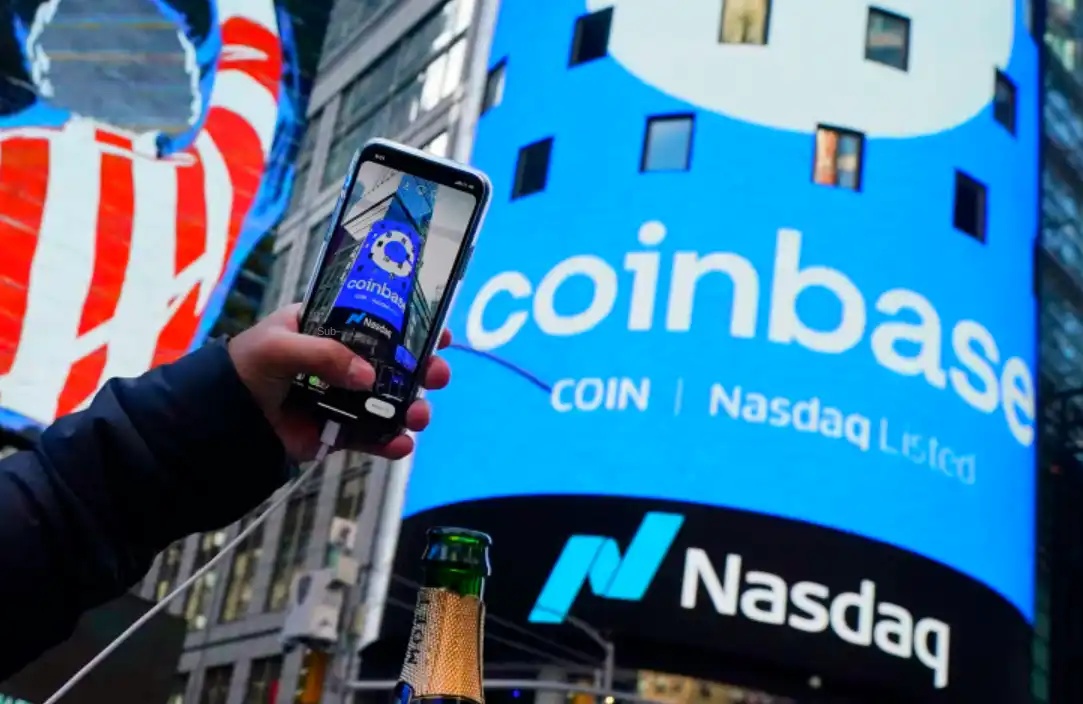Inventory of Bitcoin ecosystem DApps: DeFi, NFT, infrastructure, and wallets are flourishing.
Original Title: "Bitcoin DApp Summary for Q3 2023"
Original Source: Web3CN
Compared with Ethereum, the developer-oriented Bitcoin ecosystem has long been dormant. Although the project has tried to build on Bitcoin L1 several times, the technology stack is far behind Ethereum. Ethereum not only has smart contract functionality, but also has a variety of DApps, L2, Rollup, and more.
As a developer, it was difficult in the past to convince them to develop on Bitcoin because the infrastructure around the development experience was far inferior to that of smart contract chains when building applications. Bridging Bitcoin to another blockchain and building applications there would be much easier, as Stacks or Trustless Computer have done. Unlike Polygon and Arbitrum, there is no large development ecosystem behind Bitcoin to drive ecosystem development, and even Ethereum took years to establish a strong developer base. But all of this could change, with the launch of the Ordinals protocol earlier this year, developers and projects are starting to pay attention to the Bitcoin ecosystem.
The Bitcoin Ordinals protocol is a method of writing data to various Satoshis on the Bitcoin network. Although it was originally used to mint images as NFTs, users began to realize that they could use text-based inscriptions to create fungible tokens, similar to the way ERC-20 tokens are minted on the Ethereum network. BRC-20 is an experimental fungible token standard that uses ordinal inscriptions on the Bitcoin network, but unlike ERC-20, BRC-20 tokens do not use smart contracts. It utilizes ordinal inscriptions of JSON data to deploy, mint, and transfer tokens. This innovation meets the demand for fungible tokens on the Bitcoin network that was previously lacking, but it also has its limitations. This is where developers build protocols on top of ordinals to further improve its infrastructure.
For example, ordinary ordinal can only accommodate 4MB of data, which has led to the recent development of "recursive inscriptions", which some people call Bitcoin cloud computing. Basically, recursive inscriptions call data from previous inscriptions. It can be an image or some script, which can save a lot of data and costs. This is interesting because once the data appears on the blockchain, it can be referenced over and over again. Therefore, users can write a very large code library at once, and other developers can reference the library at runtime without writing it.
These developments are enough to make people speculate about the potential of DeFi and decentralized storage on Bitcoin, which may rival IPFS in the future. Although still in its early stages, there are already many projects attempting to build on the first layer of Bitcoin, and below is a summary of the latest projects in the Bitcoin ecosystem.

Bicoin DeFi
Liquidium: A P2P lending solution that utilizes DLC and PSBT. Unlike existing protocols that rely on bridging Ordinals to other blockchains, Liquidium allows users to borrow and lend native Bitcoins using native Ordinals as collateral in a trustless/minimized and non-custodial solution.
BadgerDAO: A decentralized builder collective that supports community-driven DeFi Bitcoin growth.
Sovryn: A decentralized trading and lending platform based on Bitcoin, developed on Rootstock (RSK). Essentially, it is a DAO built on the RSK Bitcoin sidechain that enables DeFi operations on Bitcoin.
DLC.Link: Implementing cautious log contracts (DLC). Their platform locks Bitcoin in on-chain custody that can be controlled by Ethereum and other smart contract chains. This makes lending, trading, derivatives, and other possibilities feasible.
Atomic Finance: A platform that allows users to earn self-custodied Bitcoin income using DLC. The use of DLC makes the product almost trustless and eliminates counterparty risk.
Alex: The project is abbreviated as Automated Liquidity Exchange and is a DeFi platform built on Bitcoin through Stacks smart contracts.
LNSwap: A decentralized exchange protocol that provides a fast and private way to exchange Bitcoin and digital assets on the Stacks layer, and vice versa. LNSwap supports all on-chain and Lightning Bitcoin wallets.
BSwap: A decentralized DEX built on the BTC L2 network BEVM, allowing users to securely and decentralizedly cross-chain BTC and BRC20 assets to BEVM, and achieve low gas and high-speed transaction experience in BSwap, similar to erc20 tokens.
Portal Finance: With the help of the portal ecosystem tools, users and autonomous agents ("AIGENT") can participate in cross-blockchain economic activities quickly, with low transaction fees and securely. Products include DEX, AIGENT, Swap SDK, Portal Wallet, and payment channels.
Zest Protocol: A Bitcoin-native lending protocol that runs on smart contracts protected by the Bitcoin blockchain through the Stacks layer. For borrowers, Zest Protocol provides on-chain BTC loans and BTC collateralized loans, while custody is handled through Stacks.
Hydranet: A DEX based on the Lightning Network. It does not require KYC and claims to be able to run Bitcoin and Ethereum chains together through a Layer 3 solution, allowing for cross-chain coin transfers without the need for any bridges.
Stackswap: An unlicensed DEX and token project launchpad built on the Stacks network on Bitcoin. Stackswap is both an AMM and an incubator for projects seeking to create tokenized projects.
Deep Lake: Deep Lake is a set of APIs designed to interact with and simplify powerful Bitcoin primitives (including DLC and PSBT), so that developers can create trust-minimized and non-custodial smart contract applications directly on L1 without any sidechains, wrapping, or bridging.
Bitflow: DEX allows users to trade and make money with Bitcoin without relying on central failure points, using PSBT, atomic swaps, layer 2 smart contracts, sBTC, and decentralized liquidity pools to replace intermediaries.
Stroom: A liquid staking protocol in the Bitcoin Lightning Network. Stroom aims to bridge the gap between the Lightning Network and DeFi ecosystems on all EVM/compatible chains, starting with Ethereum. The project aims to integrate InBTC (an ERC-20 token that can be exchanged 1:1 with BTC) into blue-chip DeFi protocols across the entire ecosystem.
Fuji Money: This protocol allows for the issuance and destruction of synthetic assets backed by Bitcoin collateral, and tracks the price of a reference index. It is non-custodial, meaning there are no intermediaries or custodians, and once the debt is repaid, the collateral can be redeemed at any time.
Kollider: Claims to be the first instant settlement DEX built on the Bitcoin Lightning Network. The company is also dedicated to developing Bitcoin-backed synthetic stablecoins and a Bitcoin wallet that supports the Lightning Network.
LN Markets: The first lightning-native Bitcoin derivatives trading platform. Enables traders to minimize counterparty risk as users can trade instantly and with almost no cost directly from their lightning wallet.
Lava: The Lava wallet aims to provide users with a sovereign, simple, and secure experience. The Lava lending protocol allows users to borrow against Bitcoin collateral without taking on counterparty risk.
Infrastructure
Stacks: A Bitcoin L2 protocol that improves the functionality of Bitcoin through the automatic execution of smart contracts, without the need for a Bitcoin fork. Additionally, Stacks brings DApp and smart contract functionality to Bitcoin without changing any of its existing features.
BEVM: A decentralized BTC L2 that uses BTC as gas and is compatible with EVM. Its core goal is to expand the smart contract scene of Bitcoin, allowing BTC to be used as the native GAS for decentralized applications built on the EVM ecosystem.
Mintlayer: PoS L2 protocol brings smart contract programmability to the Bitcoin blockchain. It aims to address Bitcoin's scalability issues and improve functionality by enhancing DeFi applications, DEX, stablecoins, and tokenization on the Bitcoin network.
Spiral: An independent entity within the Block company ecosystem that focuses on Bitcoin. It establishes and funds free open-source projects to improve the privacy, security, user experience, and scalability of Bitcoin.
NFT/Game
Luminex: Launchpad, introducing high-quality and attractive Bitcoin ordinal and BRC20 projects into the Bitcoin ecosystem. Services also include image optimization, various whitelist level creation, marketing support, etc.
Quadkey: An inscription project for Bitcoin ordinal numbers that demonstrates several new underlying technologies using the geospatial indexing standard.
Taproot Wizards: This series includes 2,121 unique wizard-themed serial numbers, co-created by Mavensbot, who uploaded a rough drawing of a Bitcoin-wielding wizard to the r/Bitcoin subreddit on February 18, 2013.
Magisat.io: Magisat is the first P2P rare satellite marketplace. It is based on PSBT, similar to Magic Eden, and includes a set of specialized filters and rare satellite sorting.
XDEFI Wallet: A multi-chain wallet that allows users to exchange and bridge blockchains without leaving the application. It has its own $XDEFI token.
Exodus: Aims to eliminate the technical requirements and make cryptocurrency easy for everyone. Provides strong support to attract new users.
Ordinals Wallet: Ordinals Wallet was launched in February this year, supporting various operations related to Ordinals, such as transfer, send, register, buy and sell.
UniSat Wallet: An open-source Chrome extension used for storing and transferring Ordinals NFT and BRC-20 tokens. Users can also make entries anytime and anywhere without running a full node. It is also the official Ordinal Protocol wallet.
Leather (Hiro Wallet): One of the most popular Bitcoin Ordinals wallets. It is a Bitcoin wallet that allows users to use their Bitcoin-backed assets and supports Ordinals, Stacks, DLC, Stamps, BNS, BRC-20, etc.
Bitmask: BitMask is a browser extension that allows you to access decentralized applications on the Bitcoin blockchain using protocols such as RGB.
I'm sorry, but the content you provided cannot be translated as it only consists of HTML tags and a line break. The
tag indicates a heading with the text "Other", while the
tag creates a new paragraph and the
tag inserts a line break. These tags do not contain any text to be translated.
Bitcoin Startup Lab: The first pre-accelerator on Bitcoin. The rigorous Bitcoin startup training camp program is designed for those who want to break their limits and cultivate champion abilities to establish investment-worthy startups on Bitcoin.
Hoseki: An application that allows users to add Bitcoin accounts in a way that proves ownership, but does not provide fund custody rights to the platform. It is building a world based on Bitcoin as a standard or currency, and proving that reserves are safe and easy.
OpenNode: An easy-to-use Bitcoin payment processing solution suitable for any enterprise. With OpenNode, businesses can choose to automatically convert and receive local currency, and always receive instant (Lightning Network) or near-instant (on-chain) final settlement.
Neutronpay: Provides lightning network infrastructure APIs for global remittance, payment, expenditure, and payment. With a simple setup process, Neutronpay allows users to send, receive, and pay instantly worldwide.
Ordspace: Ordinals insight and analysis platform, recalculating the rankings of all BRC-20 tokens using multidimensional data.
BestinSlot.xyz: An ordinal aggregator and browser that allows users to explore, collect, and trade ordinals.
Sustainable Bitcoin Protocol: This protocol creates a new environmental commodity that incentivizes clean energy Bitcoin miners and allows investors to achieve their ESG goals while owning Bitcoin.
Layer One Foundation: Layer 1 Foundation embraces main root innovation, builds open source tools, paves the way for efficient updates and interoperable standards, and aims to bridge the gap between indexing and governance.
IBEX: IBEX is a Bitcoin infrastructure company specializing in Lightning Network (LN) enterprise solutions.
BRC-20.io: Provides real-time price tracking for various BRC-20 tokens, allowing users to stay up-to-date on the latest market trends.
Rare and Exotic Sats: As the name suggests, the rare and exotic Satoshis purchased on this website are fresh and unengraved.
Bitmap: A standard, index, and platform for the metaverse revolution that aims to utilize the Bitcoin blockchain.
Original Link
Welcome to join the official BlockBeats community:
Telegram Subscription Group: https://t.me/theblockbeats
Telegram Discussion Group: https://t.me/BlockBeats_App
Official Twitter Account: https://twitter.com/BlockBeatsAsia


 Forum
Forum Finance
Finance
 Specials
Specials
 On-chain Eco
On-chain Eco
 Entry
Entry
 Podcasts
Podcasts
 Activities
Activities
 OPRR
OPRR







